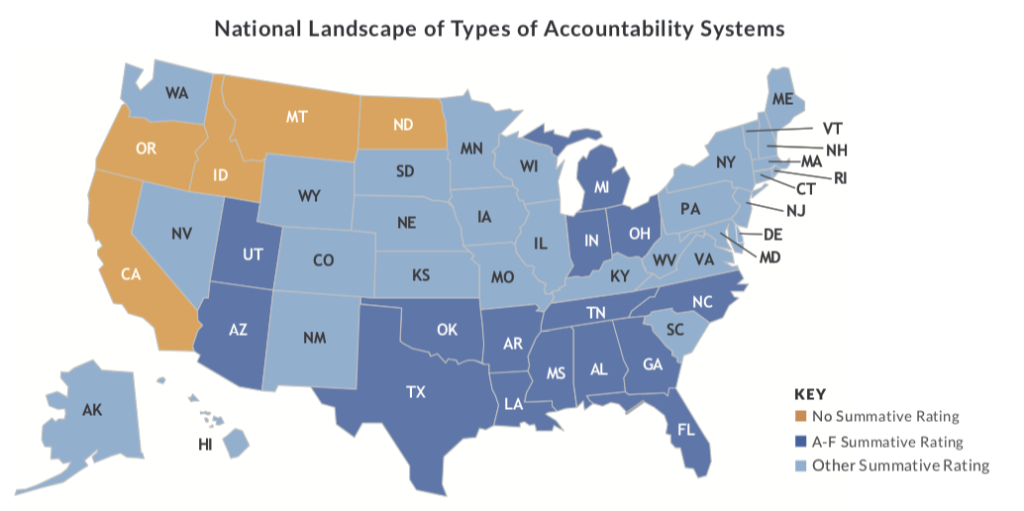

May 14, 2019
As part of our ongoing work to bring together policymakers, practitioners, and experts, The Hunt Institute recently hosted a dinner and discussion on School Accountability and Performance Grades.
 Dr. Christy Hovanetz, Senior Policy Fellow for Accountability at ExcelinEd, joined panelists Dr. Janet Mason, Superintendent of Rutherford County Schools, Freebird McKinney, Burroughs Wellcome Fund NC Teacher of the Year, and Tabari Wallace, Wells Fargo Principal of the Year for an in-depth discussion on the current state of school accountability in North Carolina. An Issue Brief was provided ahead of time to help frame the conversation.
Dr. Christy Hovanetz, Senior Policy Fellow for Accountability at ExcelinEd, joined panelists Dr. Janet Mason, Superintendent of Rutherford County Schools, Freebird McKinney, Burroughs Wellcome Fund NC Teacher of the Year, and Tabari Wallace, Wells Fargo Principal of the Year for an in-depth discussion on the current state of school accountability in North Carolina. An Issue Brief was provided ahead of time to help frame the conversation.
Dr. Hovanetz’s presentation outlined the purpose of school accountability systems and provided an overview of the many ways in which states measure school performance.
She described North Carolina’s summative, A-F ranking system, sharing that the state has a rigorous rating system with an appropriate focus on student learning outcomes.

A number of opportunities to strengthen the North Carolina ranking system were presented, including:
Following a question and answer session with Dr. Hovanetz, we welcomed our panel of leaders from the field of education to provide a school- and district-based perspective. Dr. Mason, Mr. McKinney, Mr. Wallace each spoke to the ways their individual districts, schools, and communities are impacted by school performance grades.
 While it is difficult to measure the impact school performance grades have on enrollment or attracting businesses to a given county, the panelists shared experiences indicating that receipt of a poor school performance grade can have far-reaching implications.
While it is difficult to measure the impact school performance grades have on enrollment or attracting businesses to a given county, the panelists shared experiences indicating that receipt of a poor school performance grade can have far-reaching implications.
They expressed a desire to better balance our current system such that student growth is more heavily weighted. Panelists and policymakers discussed ways that school performance grades could be communicated to families and communities to ensure that the strengths of individual schools were also highlighted.
Following the dinner, policymakers and guests were provided with a Key Takeaways document and additional outreach from The Hunt Institute to deepen understanding and find ways to continue this critical conversation.
The Hunt Institute continues to provide opportunities for North Carolina policymakers to engage with researchers and practitioners on relevant and timely topics. This dinner served as the first of three events for policymakers during the current legislative session – the others include a visit to the Wake Early College of Health and Sciences to discuss the role cooperative innovative high schools play in postsecondary attainment and an education policy discussion with Chad Aldeman of Bellwether Education Partners who will examine the role teacher pensions and deferred compensation play in teacher recruitment and retention. Check back soon for recaps of each of these learning opportunities!

Author
Allison Goff
Policy Analyst
The Hunt Institute